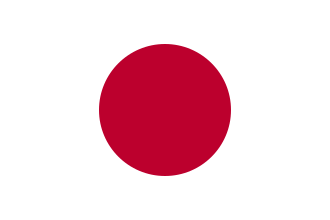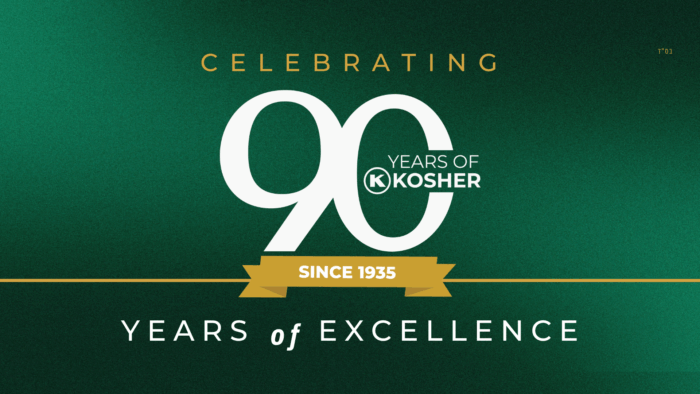KS: Where did you grow up? Where did you go to yeshiva?
RSL: I was born in East Flatbush, Brooklyn and moved with my family to Israel. As a yeshiva bochur, I studied in Lubavitcher yeshivos in Israel, Brunoy, France and at the Chabad Headquarters at 770 Eastern Parkway. I studied for semicha in Eretz Yisroel at Tomchei Temimim K’far Chabad and received semicha from HaRav Avraham Hirsch Cohen zt”l (the Rosh Kollel), HaRav Nachum Trebnik zt”l (Rav of K’far Chabad), and HaRav Yisroel Grossman zt”l (Rosh Yeshiva of Tomchei Temimim K’far Chabad).
KS: What did you do after yeshiva? When did you get married?
RSL: After yeshiva, in 1981, I got married in Eretz Yisroel and I learned in kollel. During my second year of kollel, I started teaching in a yeshiva in Rishon L’tziyon in the mornings. After kollel, my wife and I went on shlichus to Brussels, Belgium.
KS: What is your current position at the OK?
RSL:A few years ago, I started representing the OK in more of an executive position, conducting annual inspections. Now, I am the Executive Rabbinic Coordinator of OK Europe and I oversee many mashgichim throughout Europe. I have found that the most important part of my job is to have a good relationship with the people working in the plant. More than 50% of kosher certification is having a good relationship with the people of companies you certify and helping them understand what you are doing. At OK Europe, we organize kosher conferences to introduce the latest in kosher to the staff of the companies we certify. When you form close relationships with people they are more likely to come back to you with difficulties and be honest with you. All staff members, even down to maintenance workers (changing pipes, pumps, buying second-hand equipment), need to know about kosher issues.
KS: What prepared you the most for your current position at the OK?
RSL: Part of my shlichus in Belgium was working for the local kashrus agency. After I stopped working for the local kashrus agency, Rabbi Levy (Kashrus Administrator of the OK) came to Belgium (I knew him from my childhood in Kiryat Malachi, Israel) and called me. He mentioned that the OK certified a chocolate company called Callebaut and asked if I would like to be the onsite rabbi at this company on behalf of the OK. After spending some time at Callebaut with Rabbi Levy (who taught me most of my kashrus knowledge), I started working there as the mashgiach for the OK. After some years, Callebaut merged with Cocoa Barry, and they became one giant, worldwide chocolate group called Barry-Callebaut, and they chose the OK to be their kosher certifying agency. Thanks to them, many companies became interested in kosher.
KS: What is best thing about working at the OK?
RSL: The most positive thing is that the OK is very serious about kashrus. Any issue is always taken care of, with no cover-ups and total transparency. If there is a place for improvement we are the first to want to improve. When another agency wants to come visit one of our certified factories, we let them in and show them everything. If they have a way to do something better, we will improve and take their advice.
KS: How would you describe the OK today?
RSL: The OK today is a very tech-savvy kashrus agency. I regularly have companies tell me how efficient we are, especially in the area of data and the itemization of every formula and every ingredient. Companies particularly appreciate the automatic updates notices, paperless submissions, and other features of Digital Kosher.
KS: Can you share an interesting experience that you had while working at the OK?
RSL: Some companies are very big and are split into many departments. Once, a division of a global company was looking to locate a particular raw material (flavor). They weren’t sure which plant or warehouses had the ingredient. One of the staff members called me to see if I had an idea of where the raw material (a five gallon bucket) was located. I entered the information into the OK database and immediately located the plant and warehouse that contained the raw material. One of the great strengths of the OK is its focus on the global picture and immediate access to all ingredients and products under our certification.
I had another interesting experience when I was sent to a company on behalf of an OK certified company to see if an ingredient was acceptable for eventual use. I asked the OK certified company to send an email asking what products the new company spray dries. The company sent back an email with 12 ingredients and all were considered potentially acceptable. When I got to the plant, the head of the company, the quality manager, and some other staff met me there. I took out the email with the 12 ingredients and asked if they were sure there were only 12. After a half hour, I got them to admit to another 30 ingredients. I asked, “Will I get another 30 if I wait 40 more minutes, or is that it?”
They assured me that was all and took me to three of the five spray drier towers, but I wanted to see the other two. (Rabbi Levy once told me to check trash pails and see what they throw out. That’s how you know what really goes on.) I felt they didn’t want to take me to the other spray drier towers, but they wouldn’t want to just refuse. They told me that the operator was not there, but the driers were running. We walked over to the other two spray towers but the staff told me they didn’t necessarily know what was running through the machine now. The staff members went to look for some information for me. Next to the spray tower, I noticed there were 1-ton “super sacks” so I touched one. It was warm, which is a sign that it just came from the spray dryer. I looked more carefully and saw a sticker on top of the bag that read “pig gelatin”.
The company never told me about the pig gelatin and I realized that’s why they didn’t want to take me to the spray dryer. When the staff members came back, they said they tried to get into the system but didn’t have a password. The production manager was working there for 11 years, and the others also worked there for many years, but I was in the factory for one hour and was able to figure out immediately what was being dried in that spray tower. A few weeks later I got a copy of a letter from the company that sent me there apologizing for the unsuccessful visit and taking the blame. This is what the certified company wrote to them: “We forgot to tell you: don’t ever hide anything from a visiting rabbi, be transparent with them. They are not our enemies, or here to punish us, they are here to help get the ingredients kosher in the best way.”
What Other People Say About Rabbi Shimon Lasker
Rabbi Lasker started working for the OK over 20 years ago. As with all of our senior staff, he worked his way up the ranks, beginning as a mashgiach. His vast experience in kashrus and pleasant disposition made him a natural candidate for Rabbinic Coordinator at the OK. Rabbi Lasker has earned respect from the entire kashrus world and the production world for his intense dedication, vast knowledge and willingness to assist everyone in resolving all issues that confront him.”
Rabbi Don Yoel Levy,
Kashrus Administrator, OK Kosher Certification
Rabbi Lasker is very knowledgeable, friendly, and thorough. He always works to solve problems and handle situations promptly. It is a pleasure to have Rabbi Lasker as a colleague and friend.
Rabbi Leizer Teitelbaum,
Senior Rabbinic Coordinator, OK Kosher Certification
I consider Rabbi Lasker as a part of the Barry-Callebaut family. From time to time he acts as my internal quality auditor: indeed he is visiting most of our kosher certified plants in Europe himself on a regular basis. He visits our suppliers and through the years he really became an expert in chocolate making and quality. When he is in Wieze-Belgium and I’m in the office as well, we never miss each other to share thoughts, opportunities or the latest joke. His open mindedness and good social skills make him very much appreciated by all our collaborators throughout Europe.”
Willy Geeraerts,
Director Corporate Quality Assurance & Environmental Issues, Barry-Callebaut


 EN
EN  ZH
ZH  KR
KR  BR
BR  ES
ES  IN
IN  IL
IL  JP
JP 




